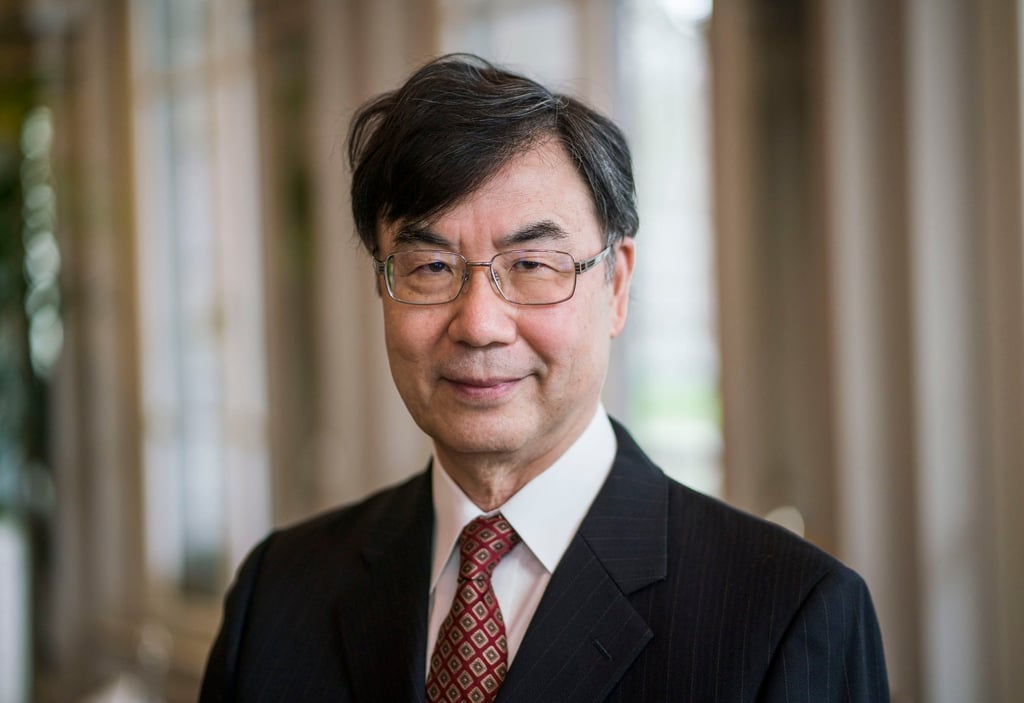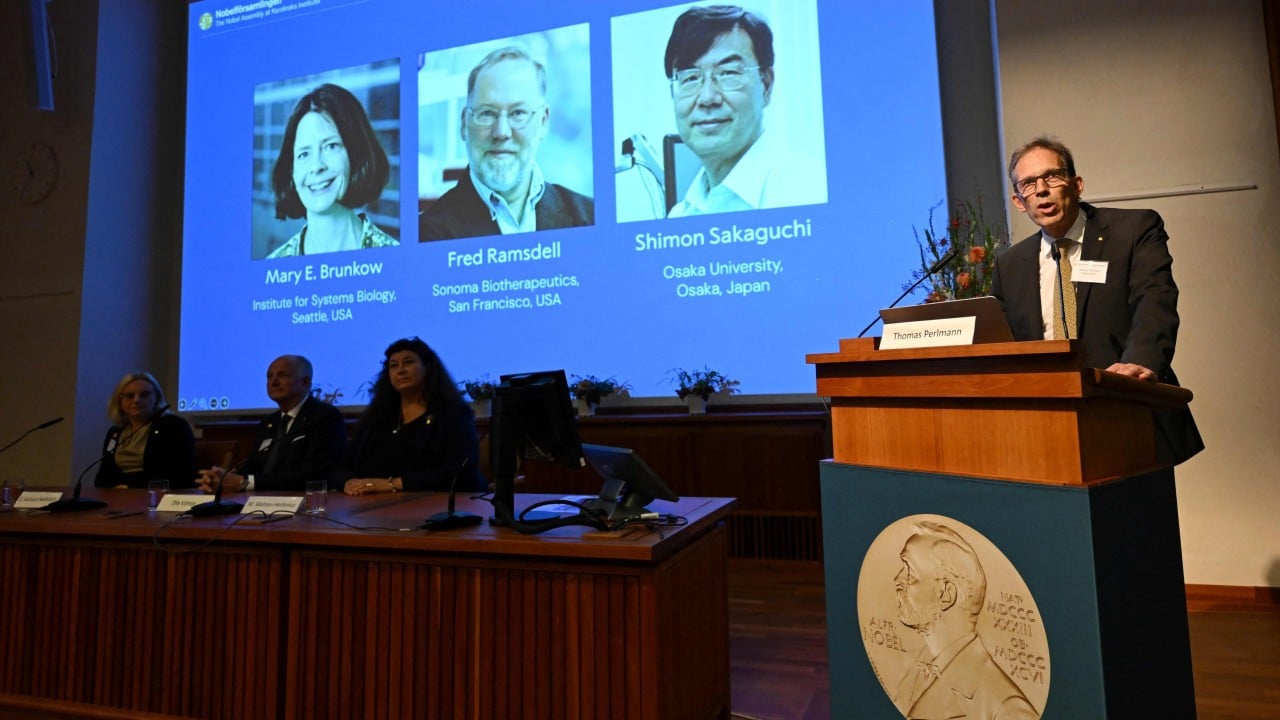Published: 5:45pm, 6 Oct 2025Updated: 7:40pm, 6 Oct 2025
American scientists Mary Brunkow, Fred Ramsdell and Shimon Sakaguchi from Japan won the 2025 Nobel Prize in Physiology or Medicine on Monday for their discoveries in peripheral immune tolerance, creating openings for possible new autoimmune disease and cancer treatments.
Advertisement
This year’s prize “relates to how we keep our immune system under control so we can fight all imaginable microbes and still avoid autoimmune disease”, said Marie Wahren-Herlenius, a rheumatology professor at the Karolinska Institute.
Sakaguchi told reporters outside his university laboratory that “I feel it is a tremendous honour,”, Kyodo news agency reported.

T cells: immune system’s ‘security guards’
The winners for medicine are selected by the Nobel Assembly of Sweden’s Karolinska Institute medical university and receive a prize sum of 11 million Swedish crowns (US$1.2 million), as well as a gold medal presented by Sweden’s king.
Brunkow is senior programme manager at the Institute for Systems Biology in Seattle, while Ramsdell is scientific adviser at Sonoma Biotherapeutics in San Francisco, which he co-founded. Sakaguchi is a professor at Osaka University in Japan.
“Their discoveries have laid the foundation for a new field of research and spurred the development of new treatments, for example for cancer and autoimmune diseases,” the prize-awarding body said in a statement.
Advertisement
The laureates identified so-called regulatory T cells, which act as the immune system’s security guards that keep immune cells from attacking our own bodies, it added.

